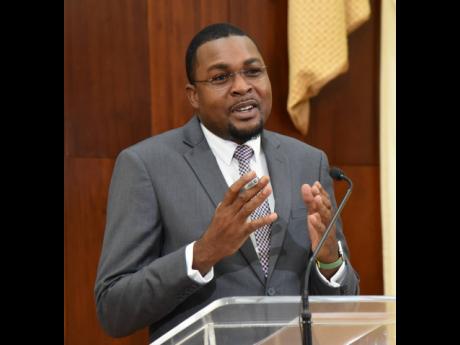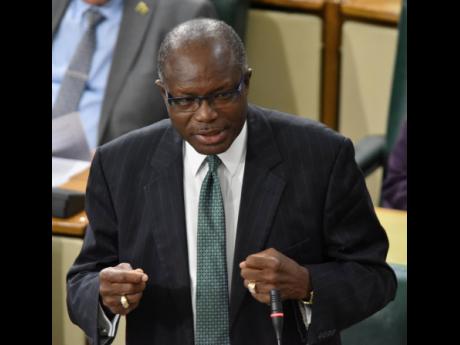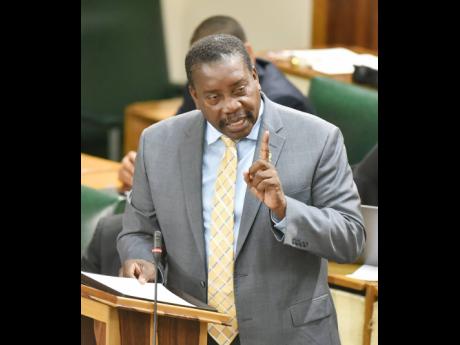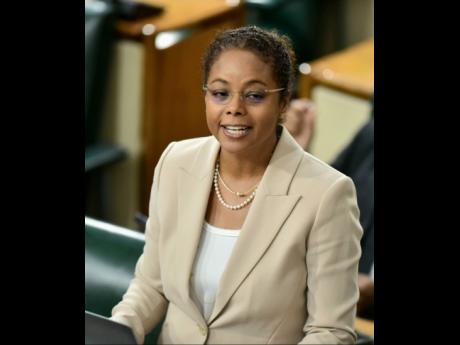Mark Wignall | Exploring a titanic moment?
In one speech, the prime minister shows comfort with both sides of one issue. He wants senior members of his Government – Mrs Malahoo Forte, Mr Morgan, Mr Warmington, and party Chairman Mr Montague to cease the ‘cass cass’ regarding the Integrity Commission (IC). At the same time, he states that some of the points raised in the criticism were valid. Really?
All of the individuals mentioned may have read, at some early stage of their education, Sun Tzu’s The Art of War. And it seems that they may have misinterpreted sections on timing and strategy. I say this because I cannot figure out the reasoning behind making a declaration of ‘war’ when the troops are ill-prepared, the objective ill-defined and most are mentally stalled on the greasy fat of the feast to come.
The common thread coming through is an intoxication on the fumes of political power.
Painfully stung by a June 6 release from the Integrity Commission (IC) which was explanatory instead of harshly critical of the Jamaica Labour Party’s (JLP’s) approach Mr Robert Nesta Morgan, in charge of the information portfolio, picks a useless fight.
“That was never my argument. My simple argument was you never sent the code to me. You are asking me to sign a document based on media reports when I have never seen the document,” he said. Seriously now, if that was Mr Morgan’s attempt at comedy, why was there no laughter?
In all of this, we cannot dilly dally around addressing the big elephant in the room: the probability that key members of the JLP administration cannot sign to a true representation of themselves. Could it be a mass attack of conscience or something more sinister?
Effective governance has its perils. In the United States, at the election every four years, the president steps into a machinery of governance where the parts are moving with the strongest torque known to politics. In that machinery is the military industrial complex coupled with America’s belief that it is OK to use covert war and death abroad (the CIA) to meet its ‘manifest destiny’ objectives. The president’s domestic power must fit into, and is often limited by, those objectives.
In Jamaica, Andrew Holness has enormous power in the governance of our people. Much more than Biden and those before him have over ordinary Americans.
BAD TEAMWORK
The great surprise for me was Delroy Chuck, the justice minister. It is not normal that Mr Chuck, a lawyer, allows himself to be easily rattled. For the plain reason that calm-headedness is a duty of his profession. Plus his personality is driven by calm. And how was that calm conveyed to the nation?
Let’s step back for a while. Malahoo Forte accused the IC of trying to shame the JLP administration. So in his greater wisdom in elevating the tenor of ideas and philosophies in Jamaica, he sounded off at the fish market and called the IC “’rude and repugnant”. Way to go, Delroy!
A reader emailed me two Thursdays ago. “Something is not right. Malahoo Forte was upset the Integrity Commission did not meet with Cabinet. The IC replied it had met with Cabinet about ten times. Morgan stated he has never seen an IC document. Where was he for the ten meetings with Cabinet? And now Chuck stating the IC is supposed to identify corruption. Why the pushback to the IC? Why have the PM and members of his Cabinet not signed the documents in question? Why the distractions, distinctions?”
This is plainly bruk-stone governance. Is the administration totally baked into the idea that the people of this country must be in political debt to it because of its favourable ratings during the difficult days of COVID-19? Are we not free to expect governance beyond that time? And, signing a document like the IC declarations ought never to be guided mainly by duty. It is to be expected as political decency.
WILL HANGING SOLVE A NATION’S BRUTALITY?
The horrendous killing of eight-year-old Danielle Rowe two Fridays ago has brought back into focus the loud call for hanging of murderers of that type. At the same time, a chicken-and-egg sort of a situation arises.
Which one would best bring down the murder rate by, say, 50 per cent in one year. Hanging in the town square or surety of arrests in the first 24 hours after killings?
Jamaica is more familiar with gang killing based on fights for turf in extortion and other rackets close to the community. And of course in many communities, the level of anger is at critical levels, and that anger can often spill over into violence that brings the hot pot into the spilling of the blood of our children.
“We have first-class investigators in this country, but their efforts are constrained by the tools they are assigned to work with,” wrote Andrew Clunis in Jamaica Times, June 13.
If we buy into that, then we could see a day when many of our gunmen gathered at their criminal bases will collectively be driven into a reality that there is a 90 per cent chance that 24 hours after a murderous rampage, they will be scraped up and solid cases will be built to assist the DPP to eventually put them away. That is, with all the tools in place for the police.
“What would be the perfect tool in the fightback against the killing of our children?” I asked my psychologist friend.
“Genuine community policing. On other killings, police bullets and an eye for an eye,” she said, knowing that she would remain nameless. “This is a violent society where killing is too often a first resort, and in many areas, the police will find that the first tool at its disposal is smarter violence and slicker, more penetrative approaches to meeting fire with superior fire. The long-term plan is problematic. Our society is not a normal one. But there also has to be genuine community policing.”
Mr Clunis added in the Jamaica Times piece, “The PNP has long been saying that the JLP doesn’t have a crime plan, and that argument is beginning to gain traction despite the fact that the PNP itself doesn’t even have an anti-crime thought.”
Mark Wignall is a political and public affairs analyst. Send feedback to columns@gleanerjm.com and mawigsr@gmail.com.




